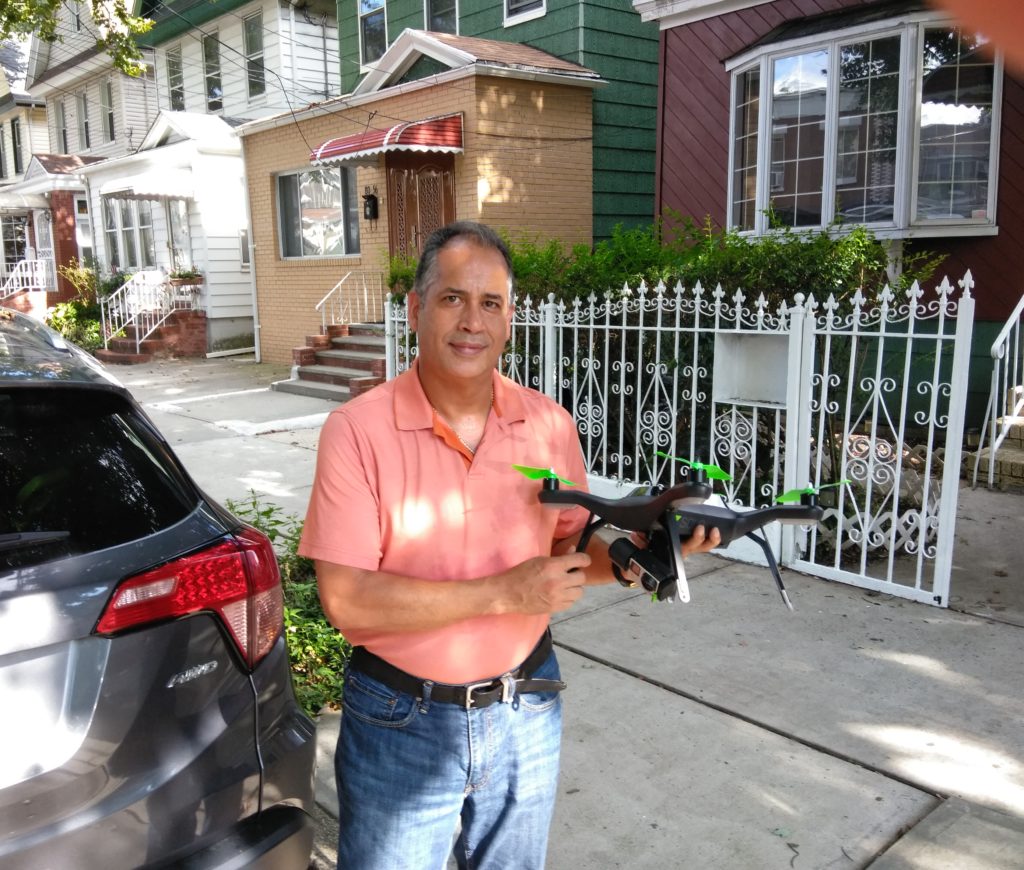By the time George Baez was laid off from his job last December at age 60, he had three decades of experience in the IT industry and a decade in the U.S. Navy. But he wasn’t sure what his next step should be. Baez did have an idea he had been thinking about for awhile, so he started attending small-business startup classes. On the website of one of those classes, he came across a mention of a new program called Veterans Entrepreneurship Training (VET).
This week the program graduated its first full class of 17 veterans, with Baez among them. The free, 12-week program takes place in Brooklyn’s Industry City at the Veterans Future Lab, a tech-startup hub launched last year by NYU Tandon School of Engineering. VET is designed to teach entrepreneurial skills to military personnel, veterans and their spouses.
While it’s heavily focused on developing ideas, the program’s director, James Hendon, also wants to make sure that it’s teaching its students how to start their business when the time comes. “This is a place where, wherever you are in your entrepreneurial journey, you can hop on board this ship, and we can help you further yourself,” Hendon told The Bridge.
James Hendon, director of the Veterans Future Lab (Photo courtesy of NYU Tandon School of Engineering)
Baez’s entrepreneurial journey was in the very early stages when he entered the program. The former submarine navigator knew that he wanted to start a drone company but needed guidance on the steps to launching a business.
“I actually wanted to introduce drones into the company that I was working for,” he said. “I’ve actually been interested in drones for the last two years. It was the type of thing that, as I was looking into my future, I wanted to see if I could use drones as a way to continue to work if I was about to retire or anything.”
He added, “The idea was there, but the program actually pushed it faster into development. It provided me with the training and the guidance to really develop it.” Baez’s company, called Hermes Drone Services, will use the technology to do rooftop inspections more efficiently and safely than physically climbing on them.
Other startup ventures from the VET graduating class include Fit Lifestyle Box from Air Force veteran Grovert Fuentes, whose monthly subscription service will deliver fitness snacks to your door; and Sunrise, from Katherine Kostreva, the spouse of a Marine veteran, who created a job search and virtual-networking platform powered by artificial intelligence.
The program includes visits from veterans who have successfully launched their own businesses (Photo courtesy of NYU Tandon)
The VET curriculum consists of lectures, a speaker series, and the presentation of a capstone project. “The speakers that were brought on, they were great people. They were insightful and they were veterans also. The idea that this is from NYU and the school of engineering, the name alone carries a lot of weight,” said Baez, ticking off the program’s benefits.
Hendon believes that having veteran entrepreneurs speak to other veteran entrepreneurs is a key aspect of the program. “You get an experience where people know exactly where you’re coming from as they talk to you about how to get from one step to the next within your venture,” he said.
A veteran himself, Hendon served in the Army as an active duty officer in 2002-09, serving in Afghanistan and Iraq. In 2009, he decided to go to grad school and transition to the Army Reserve as an assistant professor of military science, a position that he still holds. After earning masters degrees from Columbia and Harvard, Hendon worked in investment banking on Wall Street for a brief period, then as the chief operating officer of BlocPower, a green-buildings developer, and in 2016 started his own company, the Energy Economic Development Corp.
As for Baez, his next step is to register his business and begin serving customers. He highly recommends the VET program, he said, even for those who have their doubts. “Even if you’re not fully, wholeheartedly thinking about it,” he said, “just participate and maybe it’ll develop for you.”
